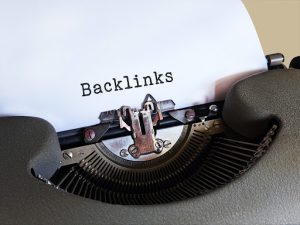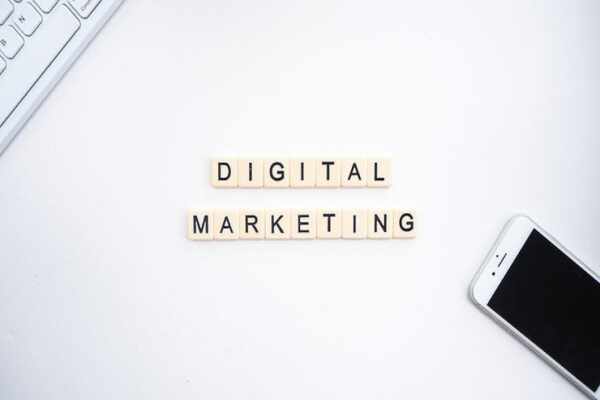Scaling your business is your ultimate goal as an entrepreneur. And to scale it like never before, you need search engine optimisation (SEO), which is a must in digital marketing.
However, few people consider social media as a part of a successful SEO approach. In fact, social media SEO gets completely overlooked.
Many people claim that there’s no point in marketing your business on social media.
But that’s wrong.
This thinking has to change.
Social media should be part of your digital marketing strategy and work exceptionally well with SEO.
Let’s see how.
Table of Contents
This Is How Social Media Affect SEO
These are five ways social media impact search engine optimisation:
- Search engine rankings: Social media can impact your website’s engagement and quality data, a major SEO ranking factor. Remember that Google values different social signals than Bing and DuckDuckGo. To put it differently, social signals are used by search algorithms to define whether your site is worthy of a high ranking.
- Content amplification: This is when you develop content that helps you find new prospects or reach out to returning visitors.
- Link building: Social media can create SEO-friendly backlinks, otherwise known as inbound links so that new prospects discover your content. Backlinks also increase your site’s domain authority, an important SEO ranking factor. Domain authority indicates whether a website is trustworthy and offers high-quality content valued by Google’s algorithm.
- Brand awareness: Use social media to build your online presence and credibility by sharing humanised and engaging content.
- Local SEO: Socials can also increase your SEO ranking and local presence through custom reviews and profile data.
Each of the above areas has social signs that impact your website’s search ranking in the search results. For this reason, social media SEO could be deemed paramount for companies of all sizes, whether startups or large enterprises.
What Are Social Signals?
We know. Since the start of the article, we’ve been repeating one phrase: social signals.
So what are those, you might ask?
Social signals refer to the data your site collects from social media platform exposure, such as Facebook, Instagram, Twitter, etc. Search engines and their unique algorithms read them. Social signals are evaluated and then factored into ranking your content.
Sample social signals:
- Likes
- Dislikes (on YouTube)
- Comments
- Reviews
- Links
- Followings
- Mentions (when somebody mentions @you)
Think of it like this: A social signal is like voting for your copy. And, even if social signals don’t carry that much weight compared to Google’s ranking factors, still they attract major traffic and boost engagement and conversions. Plus, your domain authority, a major ranking factor, is affected by the size of your following on social media, indicating the importance of social media SEO once again.
So, invest in social media SEO to extend your reach, build brand awareness, gain quality backlinks and improve your site’s domain authority!
Grow Your Reach With Social Media and Social Amplification
If we were in an ideal world, each time you published a new blog, it would be on Google’s first page, and everyone would love it and share it. However, this is not how the world and SEO work.
Consumers want content noise. And if you don’t give it to them, they won’t click on your content. Even a smart keyword strategy might not be enough to drive traffic or increase conversions. From high-authority competitors to search ads to content publishing websites, dominating the top reports seems impossible.
Here are six ways social media SEO is perfect for your marketing efforts:
- Fast search engine indexing
- Immediate traffic to your content
- Building your target audience and conversions potential for future traffic
- Drive traffic to older but still-useful content
- Reaching a specific/targeted audience that’s already interested in your products or services, or just plain content
The more traffic your website gets, the greater are your opportunities to improve your search engine position through crucial ranking signals, like content quality and user engagement.
What’s more, if many people share your article on social media, then dozens more people from each of those personal networks will share it further. And each new view who likes your content is a potential new reader or prospect ready to enter your sales funnel.
SEO is at its best if your content gets high-quality social signals from visitors, like lots of views per session, longer session times, and low bounce rates! There’s also quality traffic from others who just become aware of your brand by seeing your content shared on social media. These people can be potentially turned into customers or return visitors and link your content to another website for even more traffic.
However, consider that social media traffic can negatively impact your ranking like all other types of traffic. Poor quality content, misleading headlines, slow page load times, and plain bad user experience negatively signals to Google and other search engines. Hence, you should always aim for quality content, relevance, and usefulness in your content creation.
Suppose this is too much for you, or you’d prefer to focus on your work and helping out your customers with their needs and requirements, such as selling them more products or services. In that case, you can contact a professional content writing solution, like Strategically. We promise we can help you develop exceptional and high-end regularly that Google will love and everyone will want to share online.
How to Turn Brand Awareness Into Conversions
When a person finds your website through an Instagram tag, Pinterest pin, or via one of your own articles shared on their friend’s Facebook profile, ensure you give them the best possible user experience. For example:
- Keep your content to the point and engaging. Your tone and style should captivate your ideal audience and keep it engaged. You don’t want to leave your website as soon as they land quickly, right?
- Ensure your social media traffic sends the right signals to Google’s algorithm. You’d need to have brand profiles with detailed descriptions and high-quality images on the relevant social platforms for your target audience to discover and click on.
- Ensure your landing pages support the buyer’s journey with clear navigation, powerful but relevant CTAs, and intuitive next steps for them to follow.
- Have a clear and appealing website design. Clumsy and slow websites cause visitors to bounce away and never return! This is a negative SEO signal, and you’d want to avoid that.
Backlinks For the Win!

Undoubtedly, backlinks are a dynamic and quite powerful search ranking factor. Most SEO tools monitor your website’s backlinks, report on bad ones, which you need to correct, and suggest potential links you can pursue.
Also known as inbound links, backlinks are crucial to your SEO success. The better your website’s backlinks, the more popular search engines will deem it.
Even though social media doesn’t help with backlinks directly, links shared on social platforms can result in social media referral traffic. This resulted in a combination of brand awareness and increased traffic reach that can, in fact, get you more quality backlinks.
This boils down to a simple notion: The more new people discover and arrive at your website, the more likely your inbound traffic will grow. So, one more time, social media SEO can make the difference and help your site’s exposure!
While inbound traffic from high-authority sites is great for SEO, poor quality and spammy websites linking to yours can decrease your ranking. But that’s not all about backlinks. Unfortunately, there are also negative backlinks that can damage your SEO efforts.
The smart idea is to work with a capable SEO partner like Strategically to stay on top of your site’s backlinks and employ a high-end SEO tool, even if you have to use it.
Social Media and Local SEO
Local SEO is imperative in many industries, including dining, hospitality, and entertainment. Whether it involves a traditional Google search or voice search, you want your business to appear on the first page when a prospect in your area seeks services similar to yours.
To have your business on page one, you need to verify that your business name, address, and contact information are correctly listed on your site, business directories, and social media profiles.
How Can Social Media Can Help Your Local SEO: Four Effective Tips
- Ensure you populate your site and hours. Use an optimised company description on social media platforms: Search engines like Google use the user’s geographic location or a query location to display relevant results. So, if your company is based in London, but your contact information shows Glasgow, don’t expect people to find your business.
- Make sure your Google Business Profile listing is visible and has the correct information: This is important for voice search, as people might search “what bakery is open now?”
- Reviews, reviews, reviews! Do your best to encourage (positive) reviews on Facebook, TripAdvisor, Yelp, and Google. These are social signs and increase ranking significantly.
- Get a following: Though a not so dynamic ranking factor, the engagement levels and size of your following are social signals and contribute to your SEO ranking.
Conclusion
Social media is more than just birthday parties and graduation photos or chatting with random people. In fact, for businesses, social media is a powerful SEO tool and offers the opportunity to make your brand appear closer and more approachable to your prospects. At the same time, social media offer paid and organic reach strategies, which, if implemented correctly, can skyrocket the reach of your business.
If you need help developing optimised social media content, you can reach out to Strategically, an accredited content writing and SEO solution. This way, you avoid having to do everything by yourself!





